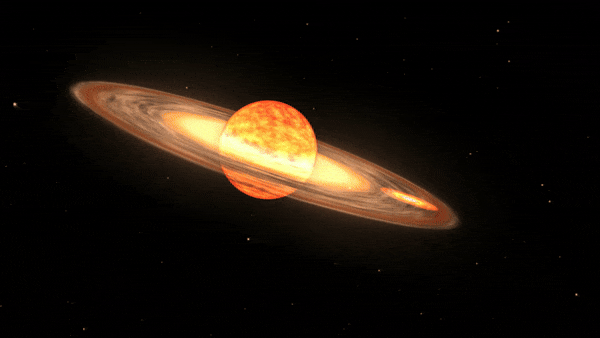Science
Related: About this forumAstronomers prepare for once-in-a-lifetime event: A 'new star' in the night sky
By Sharmila Kuthunur published 3 days ago
A rare nova explosion will soon bring a "new star" to the night sky, and scientists are excited.

an animation of a nova
An animation of a nova, similar to what'll happen to T Coronae Borealis. (Image credit: NASA/Conceptual Image Lab/Goddard Space Flight Center)
Any day now, our night sky will host a guest star.
Stargazers and astronomers around the world continue to gaze toward the Corona Borealis constellation 3,000 light-years from Earth, where a long-dead star is expected to reignite in an explosion so powerful it will briefly rival the brilliance of Polaris, the North Star. The stellar corpse last turned on almost 80 years ago and will not reignite for another 80 years, making this a nearly once-in-a-lifetime experience.
Already, the stellar remnant, a white dwarf called T Coronae Borealis that's feasting on material from a nearby red giant star, has revealed a tell-tale dip in brightness that "is right on top" of the one that preceded its previous outburst in 1946. Astronomers don't yet know for sure what's causing the dip, but they say it's just a matter of time before the nova satiates its hunger and explodes into a spectacular nova. "We know it's going to go off — it's very obvious," Edward Sion, a professor of astronomy and astrophysics at Villanova University in Pennsylvania, told Space.com.
The remarkable event is a treat not just for skygazers. Astronomers have earmarked precious time onboard a host of ground- and space-based telescopes to catalog every possible detail to learn more about novas, whose dynamics remain murky thanks to only a few outbursts cataloged over decades. T Coronae Borealis, or T Cor Bor for short, belongs to an elite club of ten recurrent novas known across the Milky Way, our home galaxy, offering astronomers a rare front-row seat to closely study a stellar corpse as it devours material to the extent that it caves in, thus recoiling in a violent explosion.
Insights from this event would eventually make their way to models of how stars work, astronomers say.
More:
https://www.livescience.com/space/astronomy/astronomers-prepare-for-once-in-a-lifetime-event-a-new-star-in-the-night-sky
Faux pas
(16,184 posts)usonian
(23,718 posts)
With my luck, it will happen in winter, in 15 degree weather.
🍀🍀🍀🍀🍀🍀🍀🍀🍀🍀
lastlib
(27,640 posts)...I was looking at Saturn on fire.... I'll have to keep an eye out for this.